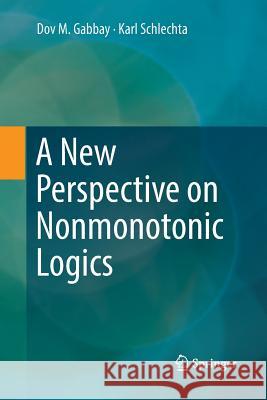A New Perspective on Nonmonotonic Logics » książka
topmenu
A New Perspective on Nonmonotonic Logics
ISBN-13: 9783319835938 / Angielski / Miękka / 2018 / 365 str.
Kategorie:
Kategorie BISAC:
Wydawca:
Springer
Język:
Angielski
ISBN-13:
9783319835938
Rok wydania:
2018
Wydanie:
Softcover Repri
Ilość stron:
365
Waga:
0.52 kg
Wymiary:
23.39 x 15.6 x 1.98
Oprawa:
Miękka
Wolumenów:
01
Dodatkowe informacje:
Wydanie ilustrowane











